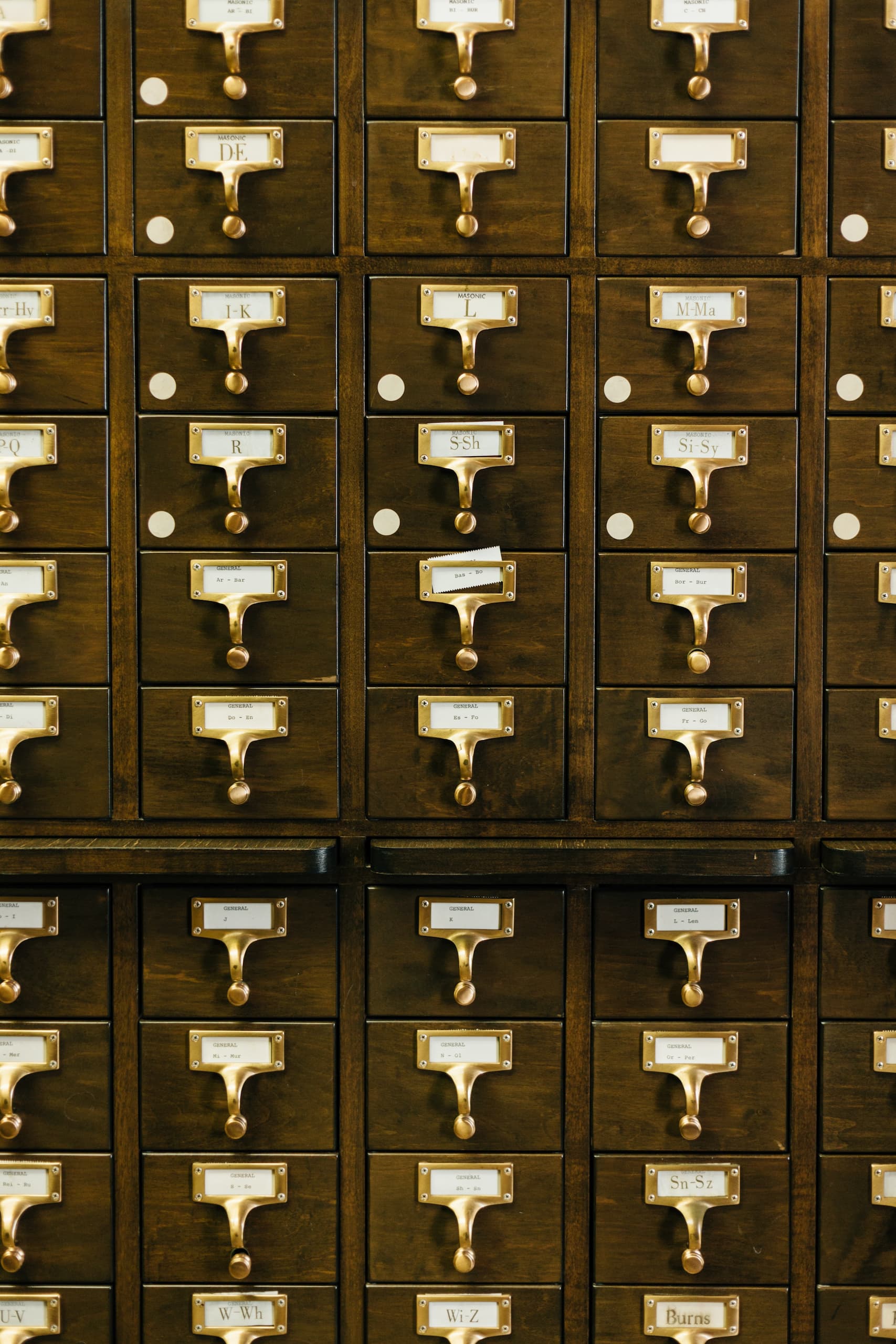
Finding aids are descriptions of archival collections. Among other elements, they typically provide biographical or historical information about the creator(s), details about what types of materials are found in a collection and what topics they are “about,” and a list of boxes and folders to help you identify what you want to request. The list of collections includes links to our finding aids that are available in electronic form.
The John Breaux Papers include records from former Senator John Breaux's tenure representing Louisiana in the U.S. House of Representatives (1972-1986) and Senate (1987-2005). The collection comprises over 700 boxes. This database allows researchers to identify specific boxes and folders for their research.
You can search the catalog record for all collections that have been fully processed. Additionally, selected items from the collections are available online in the LOUISiana Digital Library, and by 2015, all available oral history collections will be accessible through this site.
You can also search the series finding aids (also called abstracts), which are detailed descriptions of interviews at both the item level (interview) and the collection level (project or series).
For unprocessed collections, you may search the collection level descriptions that sometimes include interviewee names. Or you might do a general search of the Center's Blog and FB page. See below for availability of unprocessed collections.
A collection is an interview, and as such, it is assigned a specific collection number, such as 4700.1234. There can be several recordings (indicated by Tape #) within one collection if the person was interviewed on more than one occasion by the same interviewer.
What is the difference between a "processed collection" and an "unprocessed collection"?
A processed collection has gone through several steps to become a cataloged record, and thus available to the researching public. Those steps include a thorough vetting of copyright and restrictions, a verbatim transcription or thorough indexing of the interview including time-stamped calibration, the creation of a finding aid that includes important metadata about the collection, the preservation and optimization of audio files, the creation of user-copies, and cataloging. This process requires the efforts of several LSU Libraries staff members and it has been calculated that for every hour of recording, it takes 35-50 hours to fully process. For a detailed breakdown of the stages and fees associated with archiving oral histories, please see The Oral History Budget.
An unprocessed collection is one that has not reached the final stage of completion and is not yet ready to be cataloged. Depending on the stage of processing that the interview has reached, more or less of the interview and its contents will be available to patrons. See below for availability of unprocessed collections.
All unrestricted cataloged collections are available to patrons. Audio and/or transcriptions and indexes can also be duplicated, while restricted collections are only available on-site in the Reading Room and duplication may be limited to "Fair Use," or may not be an available option.
All requests for access to unprocessed collections require the Director's authorization. Any duplications of unprocessed interviews are not allowed beyond "Fair Use" unless this restriction is cleared by the Director upon staff review of the item. Please note that the review process may take at least one business day, depending on the size of the collection.
There are various types of restrictions to collections that will be listed in the catalog record. The most common restriction is the one triggered by incomplete paperwork and this restriction often limits the interview to on-site access-only and limited duplication.
Other restrictions are set forth by the interviewer or the interviewee, and are handled on a case-by-case basis.
Follow the procedures outlined via LSU Libraries Public Services. Be sure to have the collection number, tape number, and the name of the interviewee handy to fill out the form. Please note-these copy requests are not processed by Center personnel, but rather though Public Services, as indicated in the above procedures.
The interview will be sent to you as PDF or a MP3, delivered through a temporary file-sharing system.
There are several options and will be determined by varying style guides.
[Last Name, First Name], interview by [interviewer first name and last name], audio recording, [date], [4700.####]. Louisiana and Lower Mississippi Valley Collections, LSU Libraries, Baton Rouge, Louisiana.
[First name last name] Oral History Interview, MSS 4700.####, Louisiana and Lower Mississippi Valley Collections, LSU Libraries, Baton Rouge, Louisiana.
For assistance, please refer to Special Collections' guidelines on duplicating, citing, and publishing.
Quite possibly, you will. Please see Special Collections' guidelines on duplicating, citing, and publishing. Permission to duplicate a collection does not necessarily translate to permission to publish.
Where do I go to access the collections in your archive?
There are several ways to access oral histories:
1) You can visit LSU Libraries: Since all cataloged interviews are housed in Special Collections at Hill Memorial Library, you may visit the Reading Room where staff will assist you by pulling transcriptions from the stacks, or by providing you access to digital audio files via the stand-alone computer, which is outfitted with headphones. Additionally, by 2015, you will be able to access all cataloged available oral history interviews directly at the Center in LSU Library, Room 202.
2) You can visit the Center's collections online for select interviews. By 2015, all available collections will be accessible online for reading and audio streaming.
3) You may request a duplication of the interview.
4) A copy of the interview may be housed in another location, so be sure to double check that information in the catalog record.
No.
The Louisiana Folklife Program Project Files (Mss. 4730) are comprised of correspondence, field recordings and oral histories, and project files of its various programming efforts, publications, and projects designed to document and promote the folk ways of Louisiana.
Included are the records of projects funded by the Program and for which the Program received funding, including the Louisiana Folklife Festival, folklife surveys of the state’s regions and parishes, participation in the Smithsonian Festival of American Folklife, the New Populations Project, the Louisiana Voices educational program, and others. Early materials relate to the establishment of the Folklife Program and include correspondence and legislation.
The records also include printed items, reports, grant applications, clippings, and articles about or from agencies within the Department of Culture, Recreation and Tourism; other state agencies; various cultural institutions, programs, and festivals in the state; and out of state, national, and federal folklife-related agencies and organizations.
A large component of the collection is comprised of over 1800 audio recordings made by project staff and contracted workers at festivals or as part of folklife documentation projects. The majority have associated documentation such as timed indexes or recording logs or summaries. Topics include Acadian and African American history and traditions, farming, hunting, fishing, oil industry, small town life, education, family life, music, ghost stories, politicians, military, religion, legendary characters, civil rights, crime, hurricanes, floods, transportation and riverways.
Interviews represent people from most regions of Louisiana, including Baton Rouge, Breaux Bridge, Bogalusa, Kinder, Livingston Parish, Morgan City, Lake Charles, Lacombe, LaRose, Lecompte, Many, Sabine Parish, Mansfield, Colfax, Clinton, Covington, Cameron Parish, Crowley, Church Point, Delcambre, Eunice, Des Allemands, Fisher, Gillian, Donaldsonville, Forest Hill, Gonzales, Franklinton, Hammond, Independence, Port Allen, St. Francisville, Ruston, New Orleans, Napoleonville, Morgan City, New Iberia, Lafayette, Lake Providence, Jeanerette, Jonesboro, Mansfield, Minden, Monroe, Natchitoches, Madisonville, Washington Parish, Winnfield, St. Martinville. The Piney Woods region of Louisiana and the parishes of Iberville, Pointe Coupee, West Baton Rouge, Calcasieu, Beauregard, Allen, Jefferson Davis, Vernon, Acadia, St. Landry, St. Martin, and Evangeline are also documented.
Also present are recordings with individuals representing various immigrant groups about their cultural traditions. Included among these are interviewees who identify as Hungarian, Italian, Vietnamese, Cajun, Islenos, Filipino, German, Nicaraguans, Chinese, Cuban, Garifuna, Guatemala, Honduran, Mexican, Indian, Japanese, Korean, Laotian, Muslim, and Hispanic.
Contact LSU Libraries Special Collections for additional information.
A listing of campus units, departments, offices, centers, and organizations assigned with University Archives record group numbers.
Subject guides to manuscript collections in the Louisiana and Lower Mississippi Valley Collections (LLMVC) provide an overview of our collections on the broad subject areas given below, a list of collections relevant to those topics, and a brief description of each collection.
Many Louisiana newspapers have complex publishing histories, filled with mergers, acquisitions, extinctions, daily and weekly editions, and assorted title changes. Our newspaper "family trees" offer a visual organization of how newspapers changed over time and became related to other periodicals in the same city.
